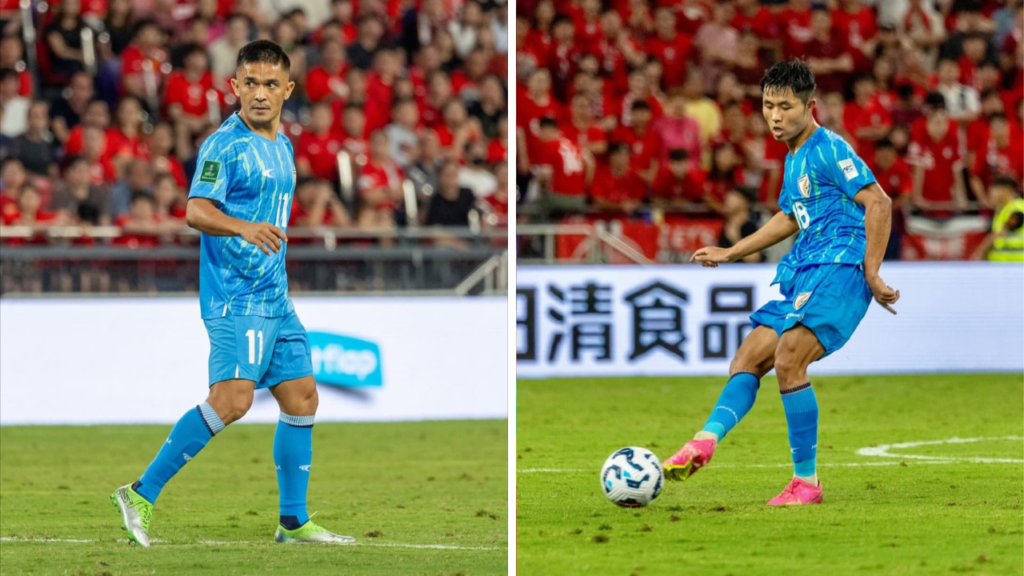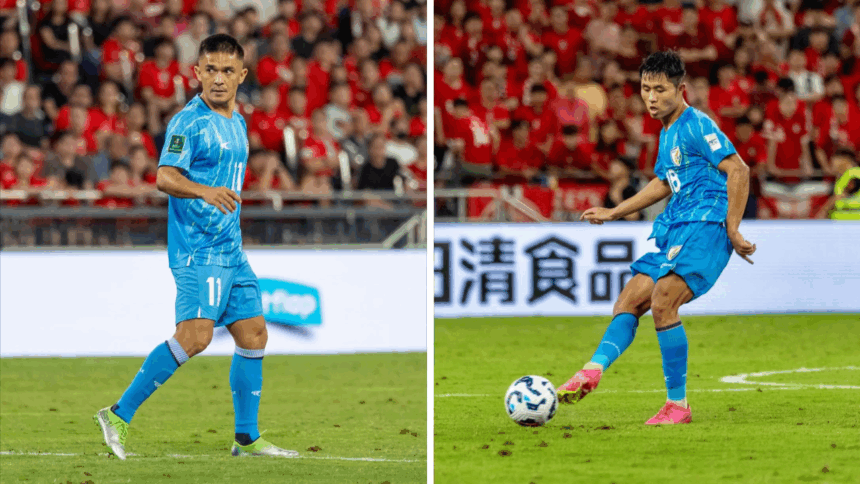
India suffered a disappointing 1-0 defeat to Hong Kong in their AFC Asian Cup qualifier, a stark contrast to their dominant 4-0 victory against the same opponent three years prior. Despite a strong showing against the 153rd-ranked nation, India failed to capitalise on scoring opportunities and couldn’t hold their nerve until the final whistle, as a late penalty in the dying moments proved costly.
Stefan Pereira’s penalty kick secured Hong Kong’s victory, sending the home crowd into rapturous cheers that reverberated across the stadium. The Hong Kong players celebrated enthusiastically with their devoted fans, basking in a crucial win.
With this triumph, Ashley Westwood’s Hong Kong side now sits at second place in Group C with four points from two matches while Singapore move to the top with a 2-1 win over Bangladesh.
Meanwhile, the wait for Manolo Marquez’s first competitive win as India coach continues. This defeat brings several key talking points into focus.
Persistent goal-scoring woes
Goal-scoring remains a long-standing Achilles’ heel for the Indian team. Even under Marquez, India have managed a paltry five goals in eight games. The attempt to bring Sunil Chhetri out of retirement hasn’t yielded the desired offensive output. Against Hong Kong, Ashique Kuruniyan squandered a sitter from a well-placed low delivery by Liston Colaco, who himself missed another well-set-up chance by Chhetri inside the box later in the game. Had these chances been converted, the scoreline would have been vastly different. The solution to this persistent problem appears distant, as it often stems from the I-League and ISL, where clubs predominantly rely on foreign strikers, often pushing Indian forwards to the wings. A significant initiative is urgently needed to address this issue.
Losing possession proves costly
Losing ball possession within the opponent’s box or nearby is acceptable, but surrendering it near one’s own penalty area or around midfield is a grave blunder that puts the team in a precarious situation. Throughout the game, Indian footballers inexplicably gave away possession to Hong Kong on multiple occasions. In the 65th minute, Suresh Wangjam Singh nearly caused a heart-stopping moment for Marquez when he relinquished possession near his own box. Fortunately, Vishal Kaith came to the rescue with a stunning fingertip save after a Hong Kong player collected the loose ball and raced towards goal, forcing a save from distance. On several instances, India managed to string together more than 10 passes, only for a single loose ball to sabotage the team’s effort, gifting possession back to the opponent and further draining the players’ energy.
Poor set-piece conversion
Another major concern for India is their dismal set-piece conversion rate. For a team that has scored only five goals in eight games under Marquez, set pieces could be a crucial weapon. However, Marquez’s squad has consistently failed to excel in this domain. Throughout the match, India earned several set-piece opportunities, including corners and free-kicks near the opponent’s box, but none of them looked threatening. Brendon Fernandes and Colaco’s deliveries lacked the venom required to pose a genuine threat to the opponent’s goal.
Vishal Kaith yet to shine for the national team
Kaith, a two-time Golden Glove winner in the ISL, became the Indian team’s first-choice goalkeeper amidst considerable fanfare. However, the shot-stopper is yet to prove his mettle under Marquez. In his official debut against Bangladesh, an early blunder almost cost India dear. Against Hong Kong, while he denied a long-range shot in the second half, questions will undoubtedly be raised about his performance in regulation time. Ultimately, the goalkeeper committed a foul that led to the decisive penalty.
Top-class refereeing as a benchmark
The refereeing in the match between Hong Kong and India offered a significant lesson for Indian referees, who frequently face scrutiny during the ISL due to game-changing errors. However, referee Shiekh Ahmad Alaeddin, who officiated the game, maintained his composure despite the fast-paced nature of the match. He demonstrated excellent fitness, keeping pace with the game and making accurate decisions at crucial moments. Notably, in the 43rd minute of the first half, he showed keen judgment when Hong Kong players vehemently appealed for a handball, but correctly ruled that the ball touching Anwar’s arm was not a penalty as his arms were adjacent to his body. Later, his decision again proved pivotal when Anwar made a tackle right at the edge of the box; the referee calmly judged the incident and made the correct call.
Follow Revsportz for latest sports news









